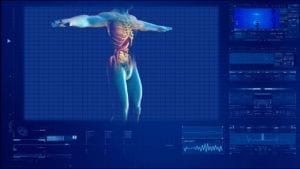Progressive Familial Intrahepatic Cholestasis (PFIC)
What is progressive familial intrahepatic cholestasis (PFIC)?
Progressive familial intrahepatic cholestasis is a group of liver conditions that are caused by defects in the biliary epithelial transporters, which are cells used in the regulation and transportation of bile out of the liver. PFIC affects mainly children.
What causes progressive familial intrahepatic cholestasis (PFIC)?
PFIC is inherited through mutated genes.
What are the symptoms of progressive familial intrahepatic cholestasis (PFIC)?
The onset of PFIC is usually before age 2, but patients have been diagnosed with the PFIC even into adolescence. The first signs of the condition are cholestasis (obstruction of bile from the liver), jaundice, and failure to thrive. In addition, intense itching is characteristic of the disease.
Fat-soluble vitamin deficiencies are common in untreated patients, which can in turn lead to all kinds of problems and secondary symptoms of PFIC, such as vision problems, broken bones, and balance problems.
Suicide has also been linked to the disease in patients who present PFIC in adolescence.
How is progressive familial intrahepatic cholestasis (PFIC) diagnosed?
PFIC is diagnosed after a thorough medical and family history is taken and a physical examination is performed. In addition to these methods, laboratory tests of blood, urine, and other tissues are done to confirm that cholestasis is present, and a liver biopsy is usually needed afterwards to find out if scarring has occurred.
Genetic tests are also available for these forms of liver disease.
What treatments are available for progressive familial intrahepatic cholestasis (PFIC)?
The initial treatment for PFIC is supportive and focused on the management of the symptoms of the disease. Drug agents such as ursodeoxycholic acid and rifampin are used to treat cholestasis and pruritus (itching).
In addition to these treatments, a partial external biliary diversion (PEBD) procedure may be done to divert bile from the gallbladder into an external bag, or surgery to remove the bile acids from the body completely has been successfully done.
Lastly, patients can supplement all of this treatment with fat-soluble vitamins and medium-chain triglycerides (MCTs), such as those in milk fats.
In severe cases of PFIC, a liver transplantation may be needed.
Where can I find more information about progressive familial intrahepatic cholestasis (PFIC)?
Progressive Familial Intrahepatic Cholestasis (PFIC) Articles

INTERVIEW: Albireo’s CEO Ron Cooper Talks Patient-Centricity, PFIC, and Study Updates


INTERVIEW: Mirum’s Chris Peetz Discusses Positive Topline Data on LIVMARLI for PFIC (Pt. 2)

INTERVIEW: Mirum’s Chris Peetz Discusses Positive Topline Data on LIVMARLI for PFIC (Pt. 1)

October 5th is Progressive Familial Intrahepatic Cholestasis Awareness Day

FDA Approves Bylvay for Treatment of Progressive Familial Intrahepatic Cholestasis








